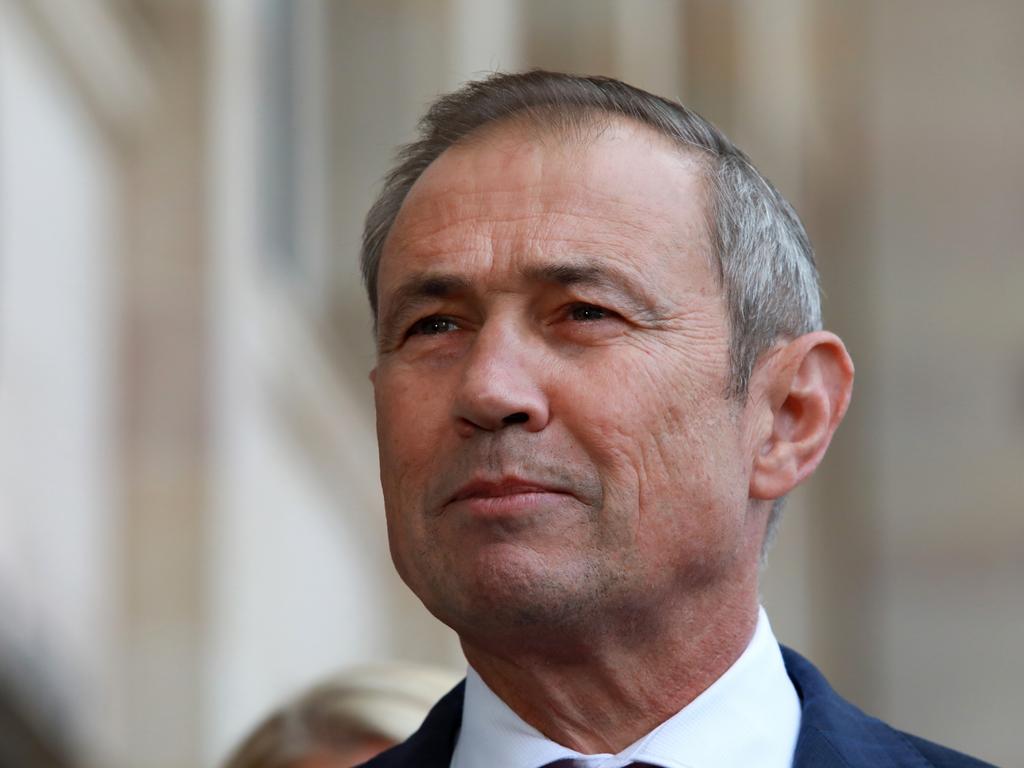Red flags over harvesting of sex abuse claims
‘Claims harvesters’ who sought people injured in traffic accidents are now trying to find prisoners willing to pursue child sex abuse claims, insurers say.

Dodgy claims-harvesting law firms are increasingly setting their sights on Australia’s prisons, as part of efforts to drum up clients for historical child sexual abuse compensation claims.
Insurance Commission of WA chief executive Rod Whithear said he and his counterparts across the nation were seeing signs that some firms were paying commissions to prison officers who refer to them inmates suspected of having been abused in state care during childhood.
The push towards the harvesting of child sex abuse claims is the latest of what Mr Whithear described as a game of “whack-a-mole” as insurers and regulators try to stamp out claims harvesting by unscrupulous law firms which often have excessive or predatory pricing models and practices.
“What we’re hearing from our peers around Australia – and we’re hearing quite directly here – is that prison officers have been paid by claims harvesters, whoever they are, to identify the harmed incarcerated individual (who may have had) some past injustices inflicted on them that may have derailed their life into a life of crime,” Mr Whithear said.
A nationwide push in recent years to scrap statutes of limitations on the filing of child sex abuse compensation claims has led to a surge in legal action and has made the area ripe for harvesters. Academic studies have found that prisoners are far more likely to have been abused as children.
At the same time, a crackdown across much of the country on the harvesting of traffic injury claims has pushed some firms to WA, which has experienced a spike in claims in recent years and which is now in the process of introducing legislation aimed at curtailing such practices. But the same harvesting techniques that proved effective for years in road injury claims are now being used in the pursuit of child sex abuse claims.
“When Queensland, NSW and ACT clamped down on (compulsory third-party insurance claims harvesting), it squeezed that activity to WA. As the states have made these changes to CTP with WA to come, the activity has squeezed into the child abuse space,” Mr Whithear said. “It’s like whack-a-mole.”
Beyond the potential involvement of prison guards in referring cases to law firms, several former inmates have started businesses finding and advising child sex abuse victims. The quality of those groups vary widely, with some offering strong support and counselling services and only referring clients to credible law firms, while others are focused on shopping victims to the highest bidder
Michael Magazanik, whose firm Rightside Legal has been involved in some of the nation’s highest-profile child sex abuse compensation cases, said there had been a clear surge in claim harvesting in the space.
Rightside, he said, had never paid for any referrals. “The real issue for me is that it’s a commercial relationship, and some will just refer survivors to anyone who pays them,” he said.
“The distance between good and bad lawyers in this space is extreme, and people are being short-changed all the time.”
Rightside recently launched a class action on behalf of eight sexual abuse survivors against prominent law firm Waller Legal, alleging the rival firm had settled their abuse claims for far less than they were worth.
Knowmore, a federally funded body established to offer free and independent legal advice and support for survivors of child abuse, has introduced a policy barring it from referring clients to law firms that have any relationship with claims harvesters.
Mr Magazanik said there was a place for organisations that made money by offering quality service and support to survivors and recommended them to good lawyers with a track record of success. “I don’t have a problem with that, but there’s just so many people out there who have no idea what they’re doing and make false promises and inflating expectations,” he said.
“Claims harvesters who send people to incompetent lawyers who pay commissions, that just damages the process and revictimises the survivor.”
While much of the focus on historical child sex abuse claims has been directed to religious institutions, the bigger potential liability lies with states. The state-owned Insurance Commission of Western Australia, for example, has set aside $300m for child sex abuse claims.
The rise in child abuse compensation claims comes as WA considers legislation aimed at limiting the harvesting of traffic injury claims. Those reforms will make it an offence to pay or be paid for claim referrals, and lawyers will need to certify that they are unaware of fees being paid.
It will also make it an offence to provide false or misleading information, while parties will be required to attend conferences and consider settlement offers before proceedings can be issued.
The reforms are confined to traffic injury claims, but a spokesman confirmed the government would consider similar measures in other areas if needed.







